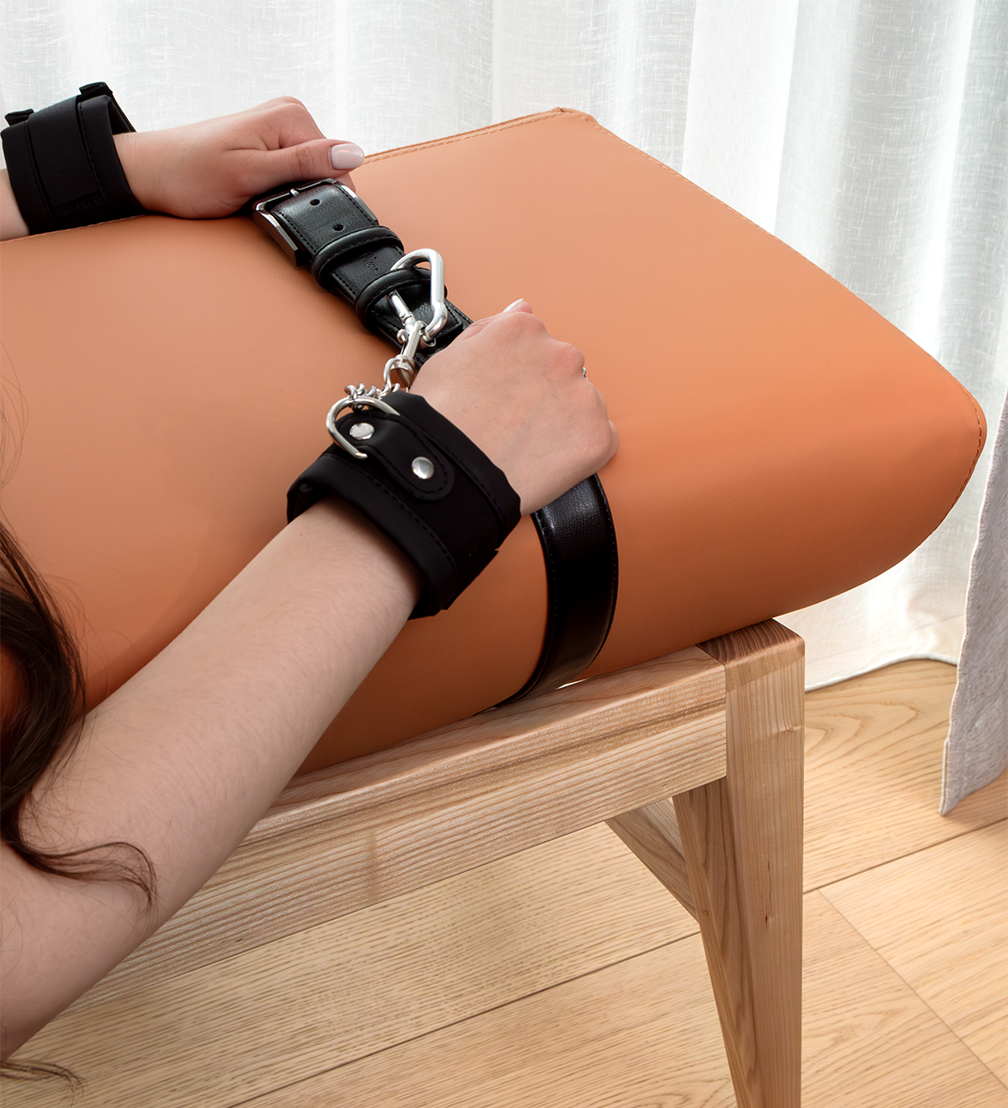
As public awareness grows, the stigmatisation of various taboo topics is gradually decreasing. One of these is BDSM — a set of sexual practices that involve erotic power exchange. To offer an alternative to the aggressive aesthetics of BDSM gear, which can make many people worry about being judged by others, young designer Zanda Seņkova has created the Randevú furniture collection, which has hidden BDSM functionality. For her work, Zanda received the Young Designer award at the National Design Award of Latvia 2025.
As the author of Randevú points out, more and more people want to try and integrate BDSM practices into their daily lives, but a significant obstacle to realising their fantasies is the easy recognisability of traditional BDSM products, which raises concerns about social condemnation. «The aim of the collection is to give curious people the opportunity to explore and enhance their sexual experience while avoiding the stigma that often accompanies the aesthetics of traditional BDSM or fetish products. To many, it may seem aggressive, rough, and unsuitable for everyday use,» emphasises Zanda Seņkova. «In addition, the collection expands the range of products available on the market for members of the BDSM community who are dissatisfied with the quality or solutions of existing products.»

In addition to psychological and privacy aspects, Randevú’s dual function also offers purely practical benefits — the furniture fits organically into living spaces and, alongside its «play» function, also serves as comfortable seating. The Soirée lounge chair can be transformed into a BDSM cross that restricts the user’s movements and fixes the body in an upright position. The chair also features an integrated foldable mattress with attachment points and a cylindrical pillow that serves as a comfortable support. The Reverie stool in the collection includes two semi-circular pillows that provide firm body support for assuming and maintaining various positions. Both products also include adjustable straps, whose main function is to secure the cushions but which can also be used as attachment points or restraints.
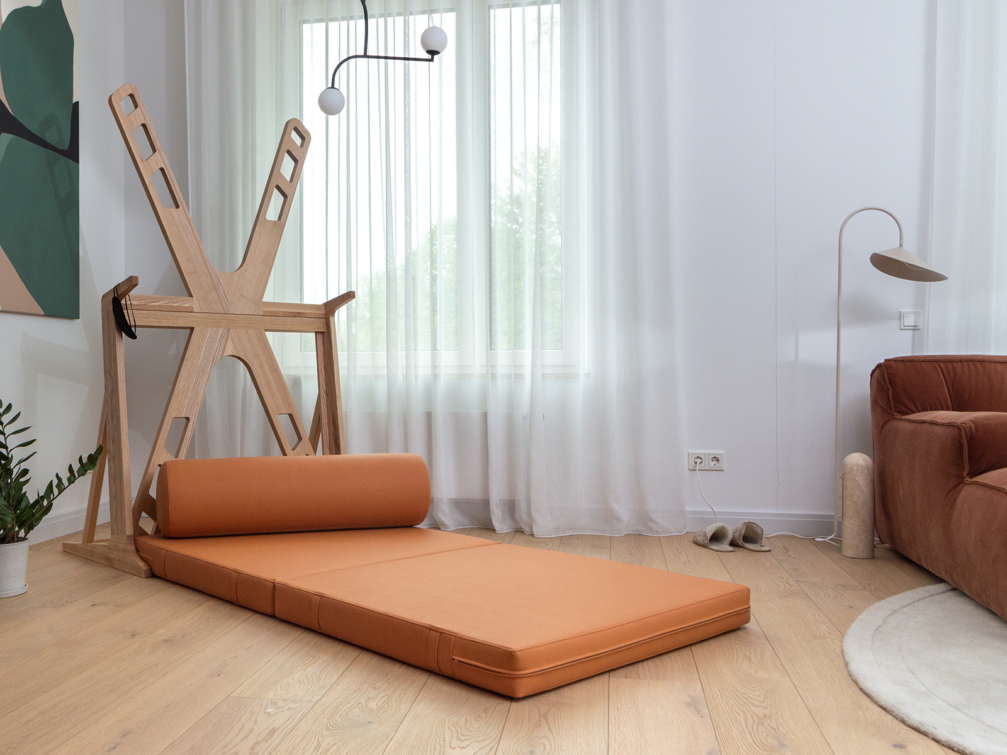
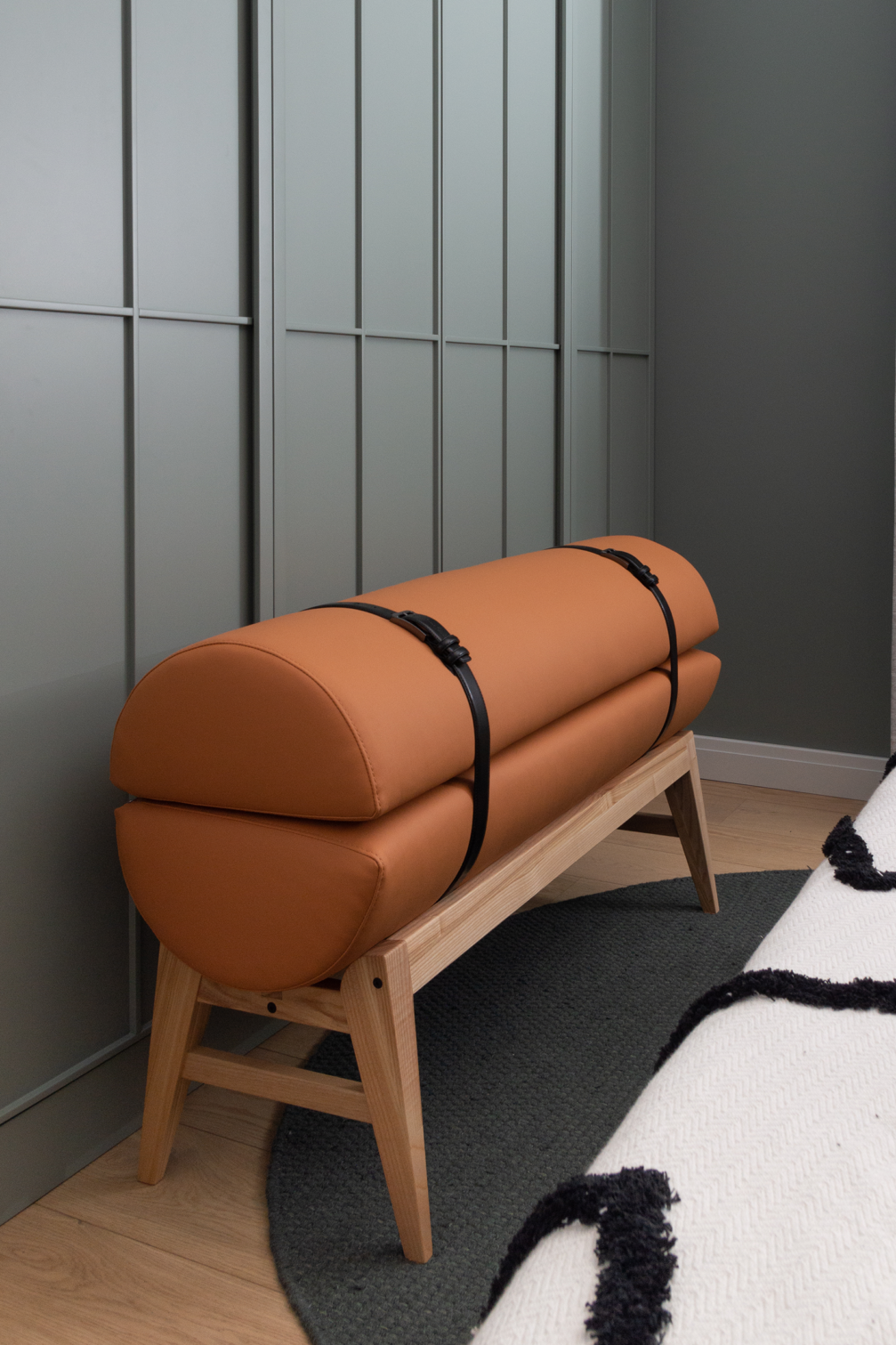
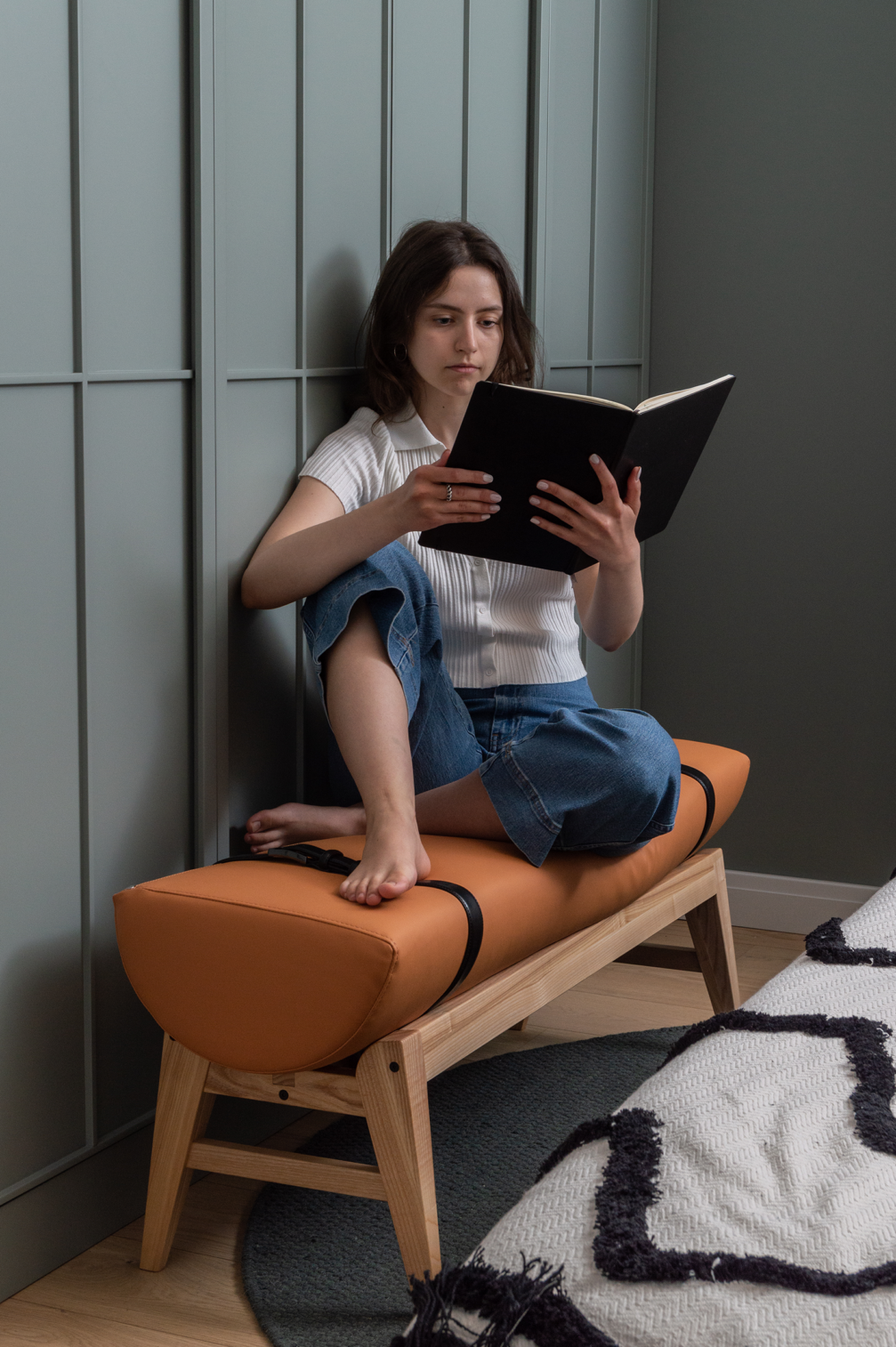
In creating the collection, the designer deliberately avoided BDSM aesthetic clichés, using light, calm and warm tones. The furniture is made of lacquered solid ash wood, while the upholstered parts are covered with orange-brown vinyl, which is durable and easy to maintain. To add detail to the furniture and give a subtle hint of its hidden function, Randevú pieces are complemented by black leather straps.
Randevú is Zanda’s bachelor’s thesis, completed while studying Materials Technology and Design at the Riga Technical University Institute of Architecture and Design. To provide a theoretical basis for product development, sexuality and BDSM expert Natalja Sorokina was brought in to help Zanda with an in-depth insight into BDSM theory and practice, as well as to assess the collection’s prototype, which she found to be very practical and functional. During the project, Zanda also conducted extensive market research, which included studying user habits and conducting surveys and interviews with potential users and industry experts.
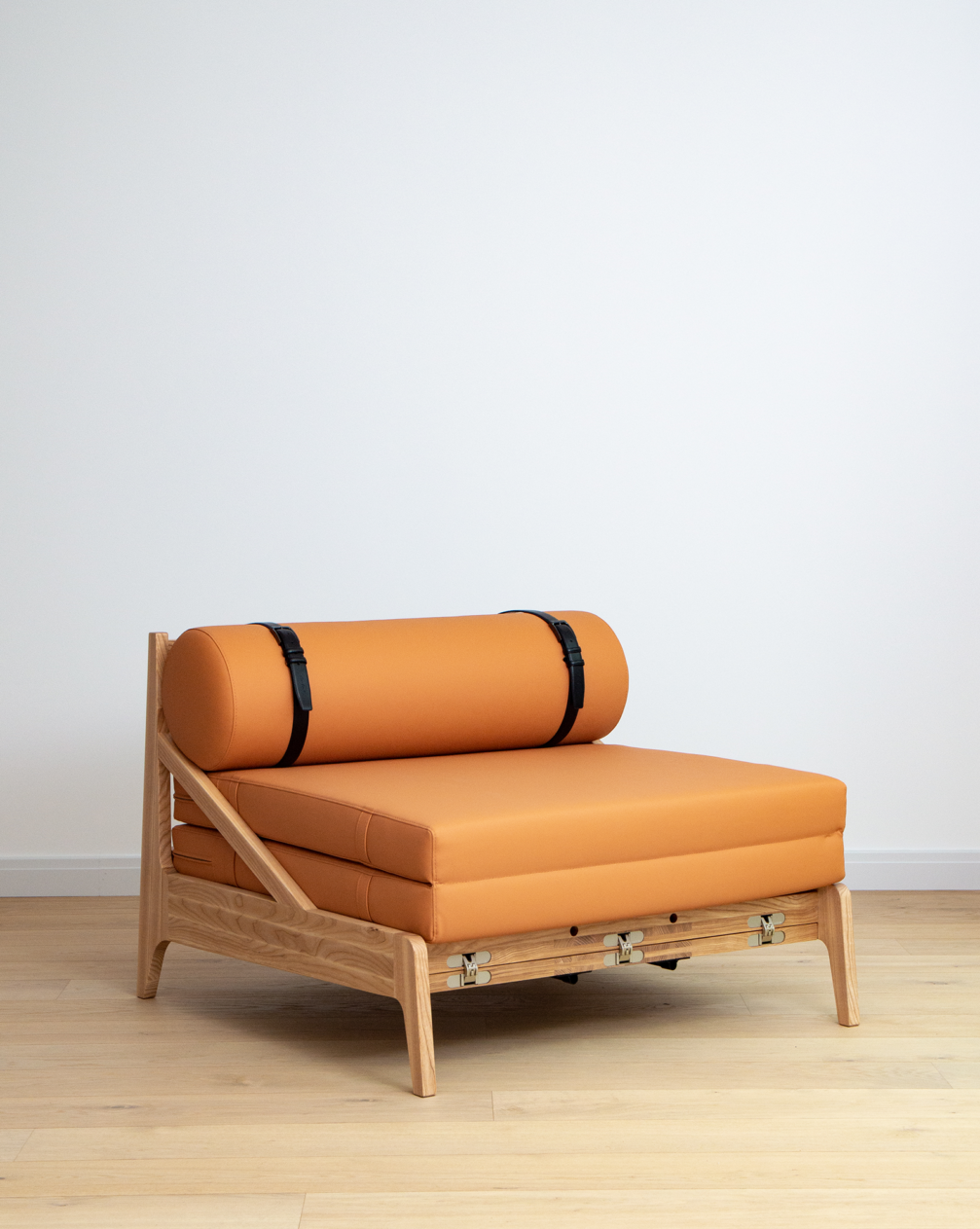
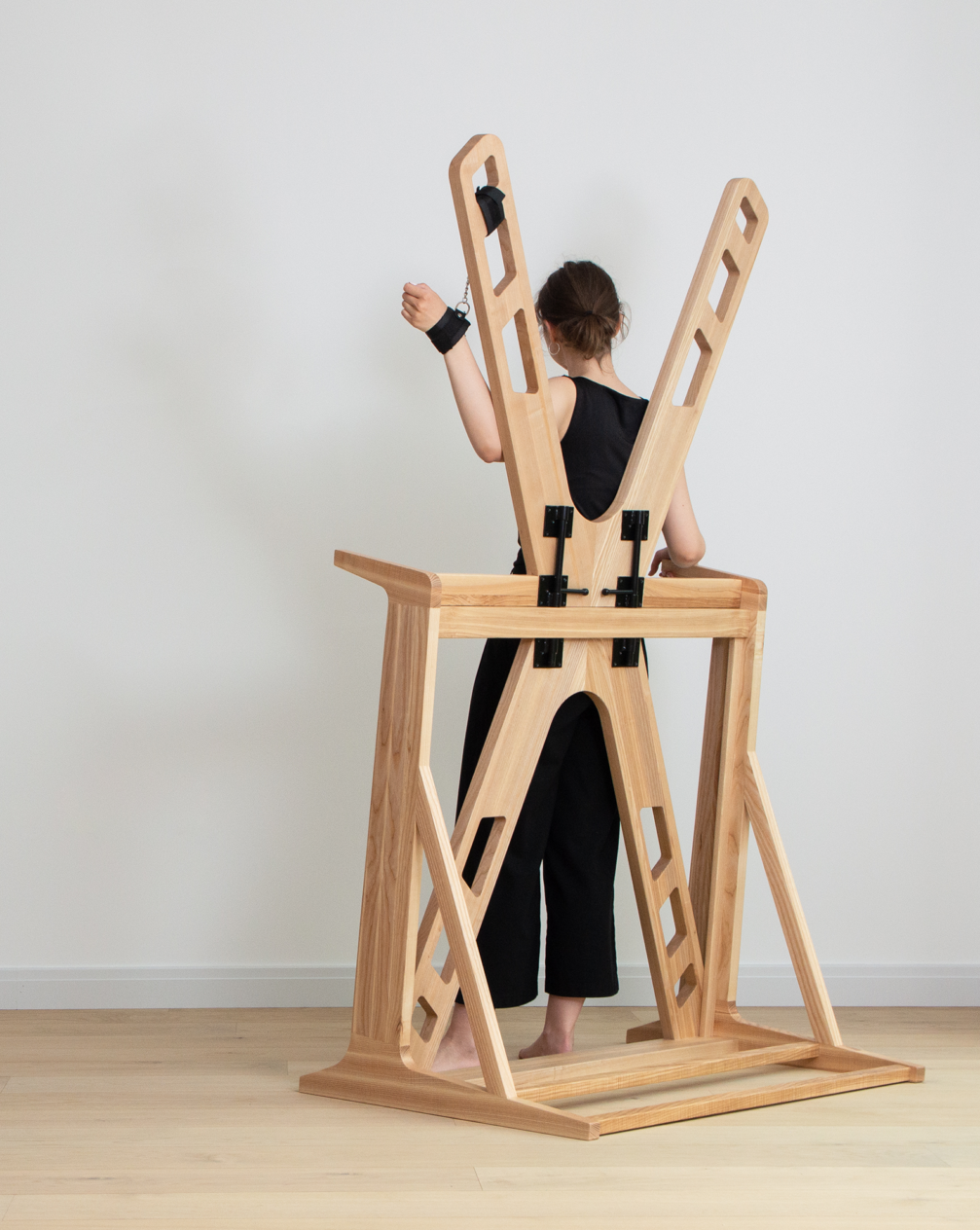
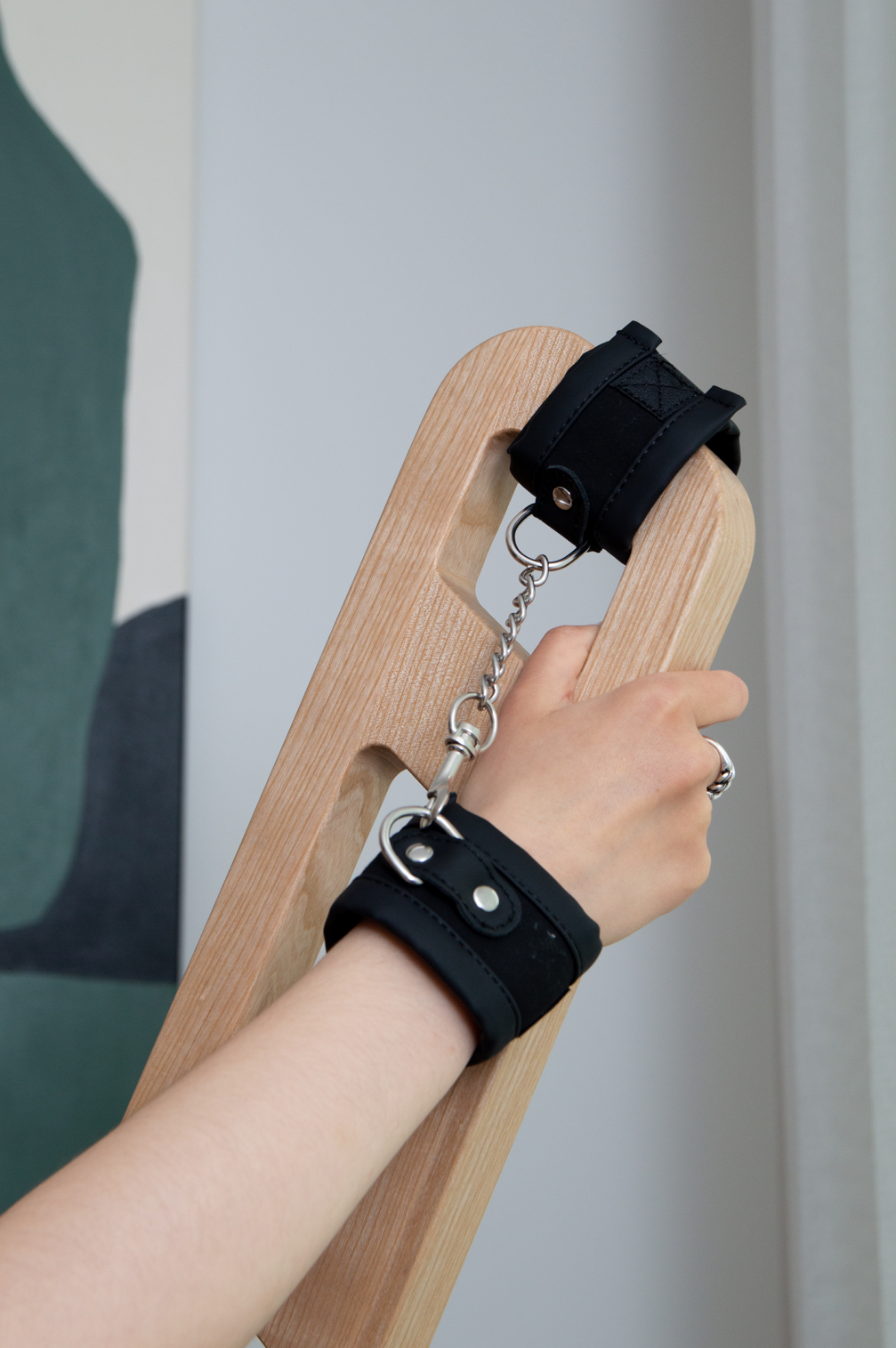
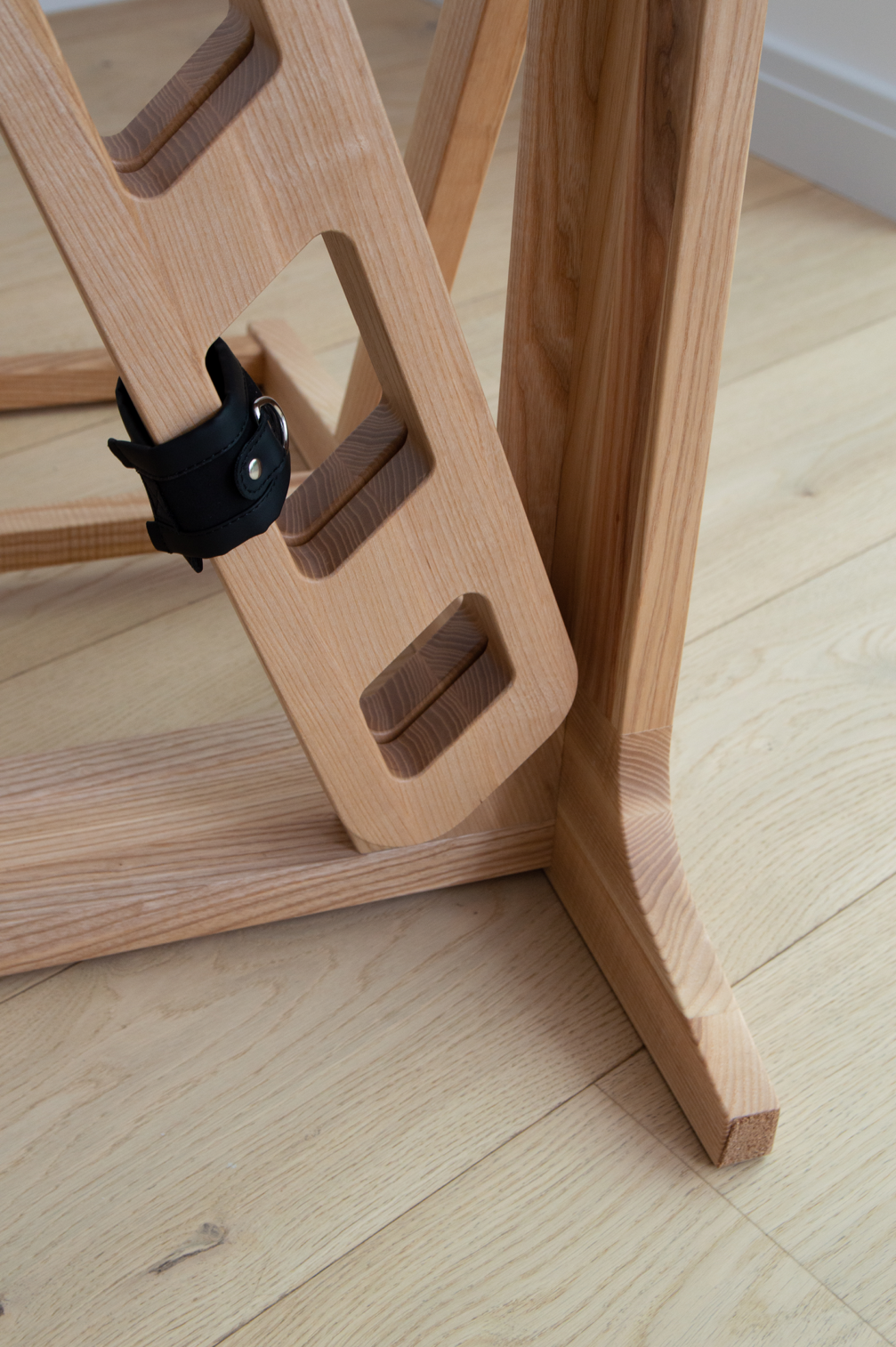
Zanda notes that Randevú has received significant interest from both potential users and investors, and the designer hopes that a manufacturer for the furniture will soon be found. She acknowledges that prototyping has been a costly endeavour, which was made possible thanks to the support of the RTU product development project, but Zanda has also invested a significant amount of her own funds in the project. The designer is currently looking for knowledgeable team members to help find the right manufacturer to launch Randevú in the European market and later in the UK and the US.
Randevú has received recognition for its bold concept and won first place in the product design category of the student design competition Design Arena 2024, and this year Zanda also received the Young Designer Award at the National Design Award of Latvia 2025 competition for her work. Randevú and other works by the winners and finalists of the Latvian Design Award 2025 will be on display at an open-air exhibition in Riga, on Esplanāde, on the Elizabetes Street side, from July 3 to 31.
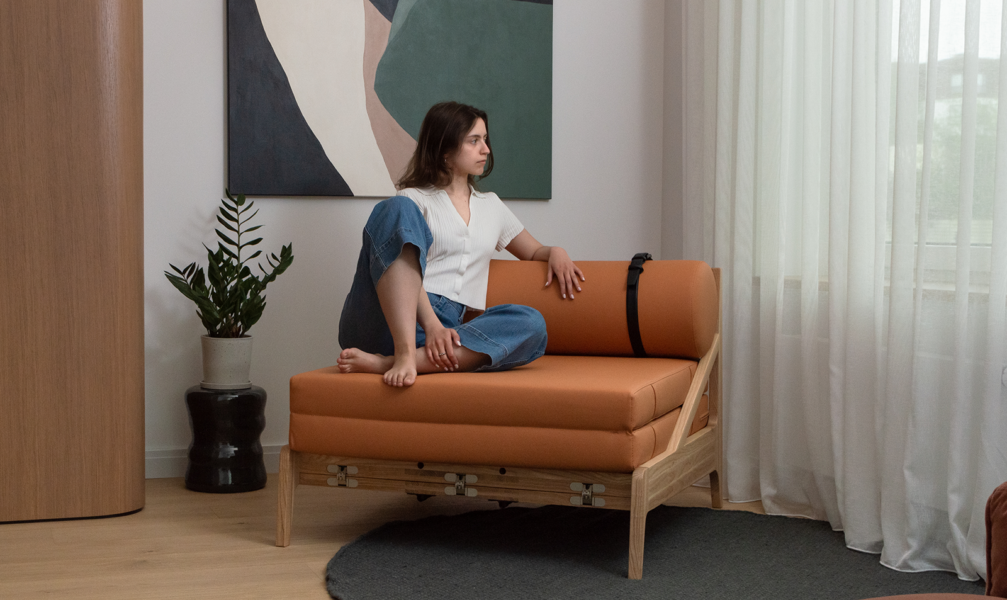

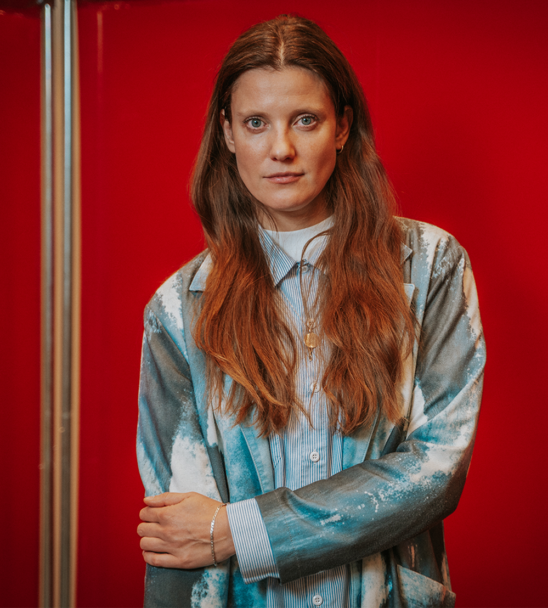
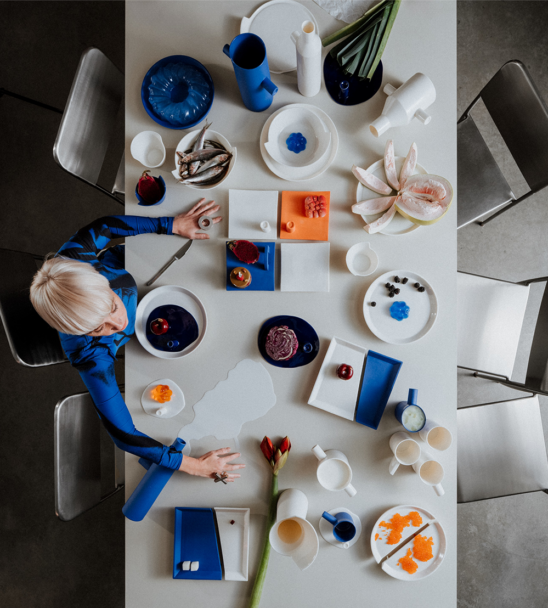
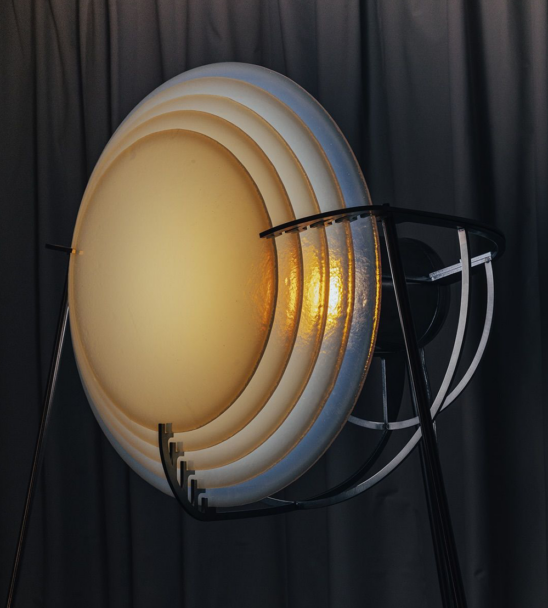
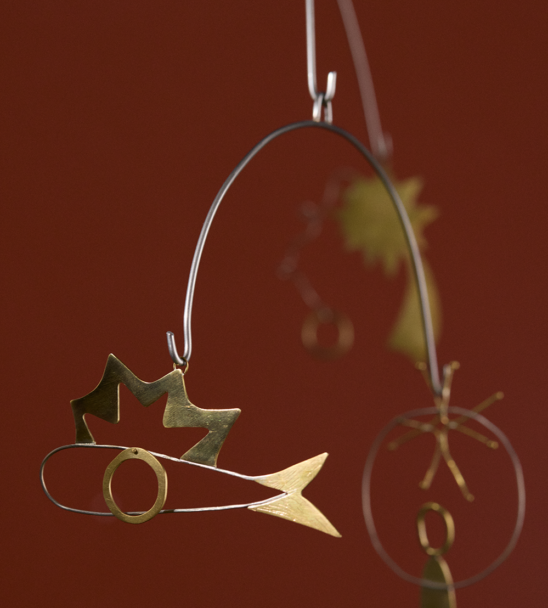

Viedokļi